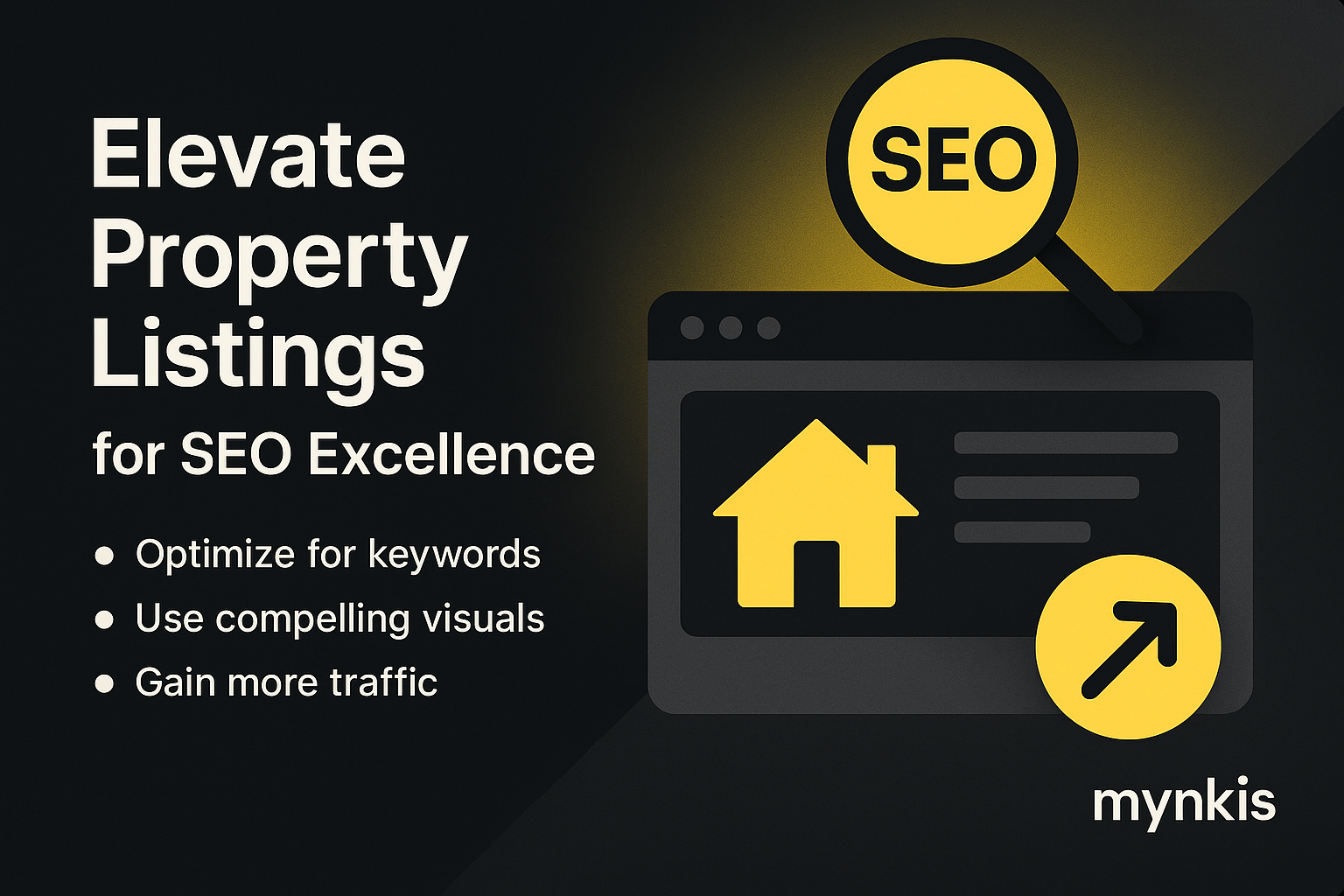Schedule a Demo
When managing a property listing website, understanding the nuances of SEO can be transformative. I’ve often advised brokers on optimizing their platforms to capture more local searches. High-quality, relevant content on your listings not only engages potential buyers but can significantly improve your site’s ranking on search engines like Google.
By focusing on targeted keywords related to properties in specific locales, I've seen brokers increase visibility dramatically. This approach ensures that when someone is looking for homes in your area, your site appears prominently in their search results. Tailoring content to reflect local community events or even seasonal trends can provide an edge, making your listings more discoverable and appealing.
On-page SEO remains one of the simplest yet most effective strategies. Every listing should include title tags and meta descriptions packed with your chosen keywords. When crafting these, be descriptive yet concise. I've witnessed first-hand how a well-tuned meta description can entice a searcher to click through to your site.
The use of header tags (H1, H2, H3) is crucial for breaking up content and signaling to search engines about the structure of your page. Make use of these tags strategically to improve readability and SEO simultaneously. Another pivotal element is optimizing your URLs; they should be clean, keyword-rich, and easy to understand. For instance, transform complex URLs into something like 'www.yourbrokerwebsite.com/downtown-luxury-apartments'.
The power of local SEO cannot be overstated. By claiming and optimizing your Google My Business listing, you can appear in local search results and on Google Maps. I always recommend ensuring your listing is up-to-date with accurate information including your physical address, phone number, and a description of your services. Local citations in regional business directories also help elevate your local search presence.
To further leverage local SEO, consider getting customer reviews. Positive reviews not only help with search engine rankings but also increase trust in your brand. It’s a two-fold strategy that not only improves SEO but also directly impacts potential client interactions with your business.
Beyond listing properties, engaging, regularly updated blog content about the local real estate market positions you as an authority. Share insights on market trends, buying or selling tips, or stories from successful transactions. Quality content attracts links from other websites, which in turn, boosts your SEO. In my experience, implementing blogs about neighborhood profiles significantly enhances the relevance of your site to local search queries.
In addition to text-based content, incorporating visual elements like interactive maps, virtual tours, or infographics can make your site more engaging and appealing to both users and search engines. Remember, the more useful your content, the longer users will stay on your site, which search engines favor.
Technical SEO involves the behind-the-scenes elements that affect how search engines crawl and index your site. Start with site speed optimization. In an age where attention spans are fleeting, a fast-loading page is crucial for maintaining user engagement and satisfaction. Tools like Google's PageSpeed Insights can help pinpoint areas needing improvement.
Additionally, ensuring your site is mobile-friendly is essential. With the majority of searches now happening on mobile devices, Google penalizes sites that don't adapt well to smaller screens. Regular technical audits can catch and correct issues such as broken links or pages, preventing negative impacts on your search rankings.
Leveraging SEO without analytics is like navigating without a compass. Using tools like Google Analytics, you can track your site's performance and understand visitor behavior. Analyzing which pages perform best can guide your content strategy and optimization efforts. I frequently help clients review their analytics to adapt their SEO tactics for better results.
Particular attention should be paid to bounce rates and time on site. If users are leaving your site quickly, it's an indicator to refine your listings or content to be more engaging. Insights from analytics pave the way for continual improvement, keeping you at the forefront of search engine rankings.
Adapting to SEO changes and trends is not just beneficial; it's necessary. There’s value in staying updated with the latest best practices from SEO experts and guides from industry-leading platforms such as Moz or Search Engine Land. These resources reflect insights into emerging algorithms and user behaviors which can be beneficial for informing your strategy.
Engagement through a tailored SEO strategy increases relevance and visibility, potentially leading to higher conversions and client acquisition for your property listings. Trust is built with every successful ranking, and with the techniques outlined, you're not just trying to improve; you're ensuring a comprehensive optimization cycle that continually benefits your real estate website.
The essence of SEO success in the realm of property listing websites is focused on continuous learning and adaptation. If the effort poured into understanding and executing SEO feels challenging at times, remember, each tweak can unveil more of your site's potential to an ever-wider audience. Effective SEO is not a one-time event, but an ongoing journey that rewards patience and attention to detail.
